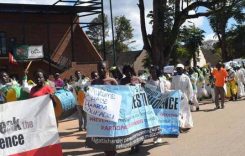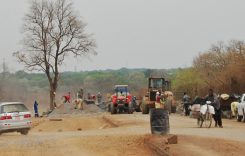As of March 18, 2020, Zimbabwe had not reported a confirmed case of COVID-19. On Tuesday, March 17, President Emmerson Mnangagwa declared the COVID-19 pandemic a national disaster. This allows the government to raise resources and take additional measures to prepare for the fight against the novel coronavirus.
Here are some of the measures that the government has put in place to deal with the COVID-19 pandemic:
1. Declaration of a national disaster
In terms of Zimbabwe’s Civil Protection Act, if the President considers “that any disaster is of such a nature and extent that extraordinary measures are necessary to assist and protect the persons affected or likely to be affected by the disaster in any area within Zimbabwe, or that circumstances are likely to arise making such measures necessary, the President may in such manner as he considers fit declare that, with effect from a date specified by him in the declaration, a state of disaster exists within an area defined by him in the declaration.”
2. No travel ban, but quarantine for travellers from high-risk countries.
Zimbabwe has not imposed a ban on travel from high-risk countries, but is discouraging travel. The government will, however, impose a 14-day quarantine on travellers from countries deemed to pose a high-risk. Zimbabweans are also discouraged from non-essential travel to these countries.
3. Major borders remain open.
All major ports of entry into the country will remain open, with only the smaller borders closed.
4. Big gatherings suspended.
Gatherings of more than 100 people, including those for purposes of worship and weddings have been suspended for 60 days, starting from March 17, after which the suspension will be reviewed. This move affects major national events, such as national independence celebrations, traditionally held on April 18, as well as the Zimbabwe International Trade Fair. Funds originally earmarked for these events will now be channeled towards the fight against COVID-19 as well as drought relief.
5. Health facilities on high alert.
All hospitals and health facilities have been put on high alert. All government premises will be equipped with screening and sanitising facilities. The private sector is encouraged to install similar facilities.
6. Isolation and treatment centres to be increased.
More isolation and treatment centres are being identified, designated and equipped appropriately.
7. Communication task force set up.
A national communication task force on COVID-19, which will disseminate accurate information and raise general awareness on the pandemic will be set up.
Prior to the new measures announced this week, the government’s approach to the coronavirus included the following measures:
- Creating systems for national alertness and rapid response to any suspected cases.
- Screening and testing at all ports of entry, and some selected sites within the country, for early detection.
- Creation of isolation centres, where suspected cases are examined and treated safely.
- Contact tracing and screening to guard against the spread of into-country infections and in-country transmissions.
- Reinforcing national health systems and institutional framework for an effective response.
- Improving community hygiene awareness and citizen action, including self-isolation and voluntary travel restrictions.
- Information dissemination and general national awareness.
- Creation of a special fund to enhance measures against the pandemic.
- Trans-national cooperation and collaboration in line with World Health Organisation rules, regulations and pronouncements.
- Encouraging inter-disciplinary research into the COVID-19 pandemic for more scientific understanding of the health emergency.
Do you want to use our content? Click Here












